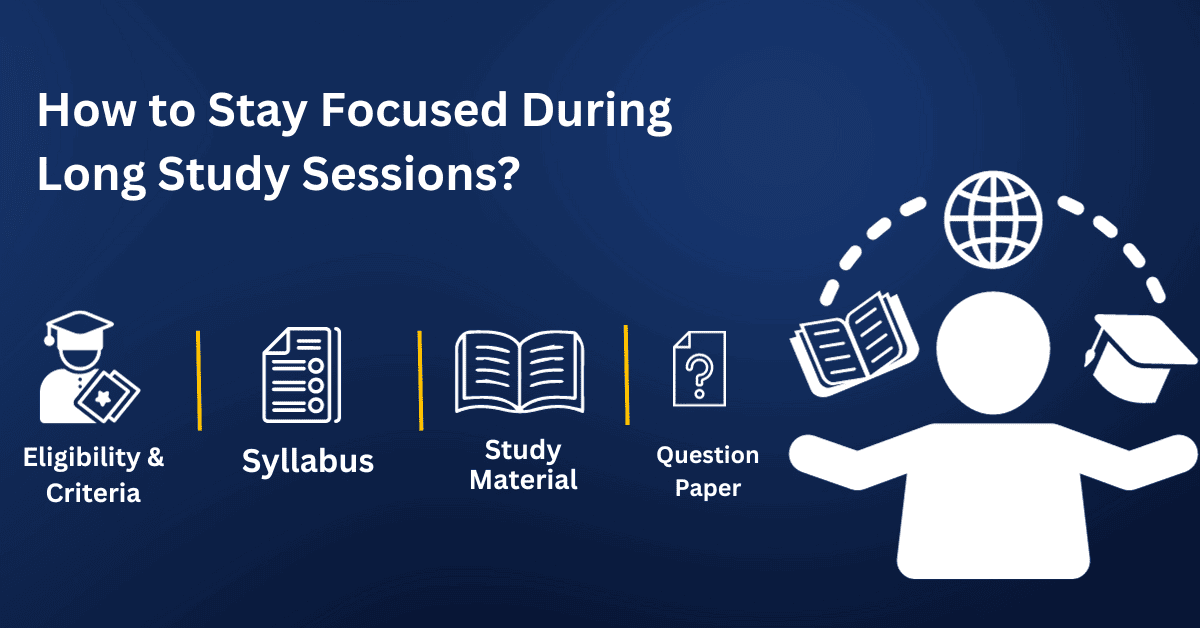Studying for long periods can be challenging, especially when distractions and fatigue creep in. Whether you’re preparing for exams or working on a big project, maintaining focus is key to getting the most out of your study sessions. Here are some effective strategies to help you stay focused and make the most of your study time.
1. Set Clear Goals
Before you begin your study session, outline what you want to achieve. Break down your tasks into manageable chunks with clear objectives. For example, instead of saying “study biology,” set a goal like “review Chapter 3 and take notes.” This makes it easier to stay on track and measure your progress.
2. Use the Pomodoro Technique
The Pomodoro Technique is a time-management method that can help improve focus. It involves studying for 25 minutes and then taking a 5-minute break. After four cycles, take a longer break of 15-30 minutes. This technique helps you stay fresh and focused by providing regular intervals to rest and recharge.
3. Create a Distraction-Free Environment
Minimize distractions in your study space. Turn off notifications on your phone or computer, and let friends or family know you’re studying. A clean, organized workspace also reduces mental clutter, allowing you to focus better on your tasks.
4. Practice Active Learning
Passive reading or highlighting isn’t always effective for retaining information. Instead, engage in active learning techniques like summarizing concepts in your own words, teaching the material to someone else, or creating mind maps. Active engagement helps keep your mind focused and alert during long study periods.
5. Stay Hydrated and Eat Healthy Snacks
Dehydration and hunger can sap your energy and focus. Keep a water bottle nearby and take sips throughout your study session. Opt for healthy snacks like nuts, fruits, or yogurt that provide sustained energy without causing sugar crashes.
6. Take Regular Breaks
While it may seem counterintuitive, taking short breaks can boost productivity. During these breaks, stand up, stretch, or take a quick walk to refresh your mind and body. Physical movement increases blood flow, helping you stay focused when you return to studying.
7. Use Study Tools and Apps
There are several apps designed to help you stay focused and manage time better. Apps like Forest, StayFocusd, and Cold Turkey block distracting websites and apps while you study. Using these tools can significantly reduce the temptation to procrastinate.
8. Stay Positive and Motivated
Studying for long periods can be mentally exhausting, so it’s important to maintain a positive attitude. Visualize the end goal, whether it’s passing an exam or completing a project, and remind yourself of the rewards of your hard work. Staying motivated can make it easier to push through longer study sessions.
9. Get Enough Sleep
Sleep is essential for cognitive function and focus. Make sure you’re well-rested before starting a long study session. Lack of sleep can lead to poor concentration, memory issues, and slower processing of information. Prioritize a good night’s sleep to keep your mind sharp.
10. Incorporate Mindfulness and Meditation
Mindfulness techniques, like meditation, can help calm your mind and improve focus. Even a few minutes of deep breathing exercises or guided meditation before or during your study session can reduce stress and enhance concentration.
Conclusion
Staying focused during long study sessions is achievable with the right techniques. By setting clear goals, managing time effectively, minimizing distractions, and maintaining a healthy lifestyle, you can improve your concentration and productivity. Implement these strategies to make the most of your study time and achieve academic success.
